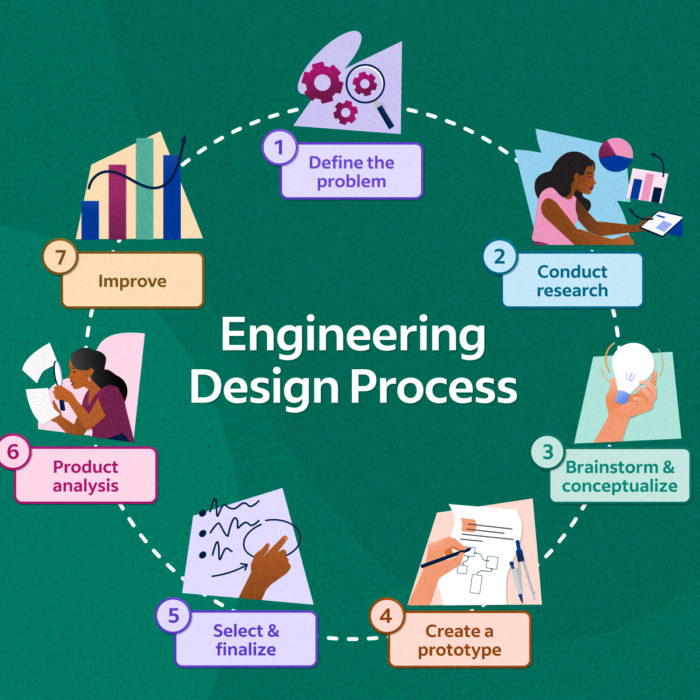
What is process?
Processes play a central role in our lives, from biochemical reactions that maintain life to intricate systems that power technological progress. At their core, processes consist of events or activities leading to specific outcomes or endpoints; in this post we’ll delve further into them by investigating definitions, types and importance within various fields such as industry, nature and technology – giving more clarity into this vital element of functionality known as processes.
First: Fundamental Process Concepts and Functions
At its core, “process” can be defined as any series of interdependent and dependent actions or events occurring to achieve an intended result or goal. They exist both naturally in our world as well as manmade systems - making understanding them an essential understanding.
A. Natural Processes Biology: Processes are central to life itself in biological terms. From protein synthesis and DNA replication in cells to more comprehensive processes like respiration and photosynthesis, life itself entails interconnecting biological processes which constantly occur throughout its existence.
Geological Processes: Earth is currently experiencing various geological processes such as erosion, plate tectonics and volcanic activity that are altering its surface and having profound ramifications for life on Earth today. These phenomena contribute to global change.
Ecological Systems: Ecosystems work through an intricate network of ecological processes like predation, nutrient cycling and succession – essential activities in maintaining environmental balance and sustainability.
B. Human-Made Methods
Industry Processes: Industrial companies depend upon various processes in order to manufacture goods, refine raw materials and provide efficient services; examples include assembly line production chemical synthesis as well as quality assurance measures.
Business Processes: Businesses utilize various processes that optimize processes and help achieve specific goals, from marketing and project management, customer support services and financial oversight.
Information Processes: Information processing has become an essential aspect of modern life. Analysis, data collection and storage all form integral parts of this vital process that drives technology advancement and drives decision making processes.
II. Types of Processes
Processes come in all sorts of different shapes and forms; each serving specific purposes and objectives. Understanding all these different processes helps us gain a comprehensive understanding of their vast diversity.
Linear Processes mes A linear process follows an order in its execution that depends on the success of each previous step, making this methodology well-organized and predictable, making them suitable for manufacturing tasks that repeat themselves frequently and repeatedly.
Production Line Assembly Companies often utilize assembly line procedures, where products are piecemeal assembled on conveyor belts as they travel.
Executing a Recipe Baking or cooking recipes are typically executed following an intricate procedure where ingredients are assembled in order to produce their intended outcome.
B. Iterative Processes Iterative methods involve repeating a set of steps until one aims at further developing or refining their final product; such techniques are frequently employed when solving complex problems and undertaking creative endeavors alike.
Software Development: Software development involves three distinct phases – designing, coding and testing/revising to ensure the final product meets standards desired by its owner.
The Scientific Method: Scientists employ an iterative process of hypothesis formation, experimentation and data analysis in order to gain deeper insights into our world.
Also Read: what-is-quality-assurance-definition-and-overview
Parallel Processes
Parallel processes occur simultaneously by involving many events or actions occurring either separately or at once, making these essential for situations requiring multitasking or efficiency.
Humans engage in parallel processing when performing simultaneous activities like talking and walking at the same time or while driving music.
Distributed Computing (DC) is an important technology concept, where parallel processing plays an integral part in performing various tasks such as rendering graphics or data processing.
Continuous Processes Continuous processes run without an endpoint or definitive outcome and can often be observed in natural systems like ecosystems and weather patterns as well as industrial settings where continuous production is crucial to production lines.
Chemical Reactions: Different chemical processes such as combustion or fermentation persist until all reactants have been consumed by them.
Ecosystem Dynamics: Ecosystems display ongoing processes through which organisms collaborate with one another and adapt to changing environments over time.
III. Importance of Processes
Processes have an immense effect on how we live our lives and are essential in understanding how things function and change over time. They play an integral part in many areas:
A. Productivity and efficiency
Efficiency is at the center of all processes in businesses and organisations alike, from operations management to service provision. By streamlining processes to reduce waste, increase productivity, conserve time and money - ultimately leading to greater quality at lower costs for items or services provided.
B. Problem Solving
Processes are essential in creating effective problem solutions across fields like medicine, engineering and research. Structured processes enable professionals in these disciplines to recognize issues quickly while simultaneously analyzing data to find long-term solutions.
C. Innovation and Progress
Technological breakthroughs and innovations often result from repetitive processes. The development of new technology, drugs, or scientific theories depends on rigorous testing and improvement protocols being adhered to over time.
Knowledge of natural processes is necessary in managing and mitigating human activities on our environment, while understanding ecological systems is also paramount for conservation efforts and responsible resource management.
IV. Continuous Process Improvement
Continuous improvement is an integral element in process management. Individuals or organizations seek ways to enhance processes to get more efficient outcomes; the improvement cycle generally follows these steps:
A. Recognize Opportunities for Improvement: This stage seeks to identify areas in which processes could be improved by increasing efficiency, cutting costs or improving quality.
B. Analyse and Measure B. Analyze and Measure: Data analysis is key in understanding where your business stands today; key performance indicators (KPIs) help measure this success.
C. Redesign and Implement: Once improvements have been identified, modifications to the process design must take place – this could involve eliminating steps, automating processes or changing procedures altogether.
D. Monitor and Evaluate To ensure sustainable improvements that deliver results, monitoring and evaluation play an essential part in making sure they last over time.
E. Continue the Cycle Improvement of processes is an ongoing task; when circumstances alter, further adjustments might be required in order for processes to remain efficient.
Conclusion
Processes are at the core of our world and range from biological systems to industrial production and the information age. Understanding our surroundings requires not just an awareness of process structures but also enhanced efficiency, problem-solving skills in specific fields and encouraging innovation while mitigating environmental effects.
Understanding the fundamentals of process can help us navigate through a maze of activities and events impacting our lives. From nature-inspired processes like photosynthesis to human-made processes like manufacturing or distribution chains, these essential building blocks play a role in functionality that drives progress towards our objectives and helps achieve progress goals.













